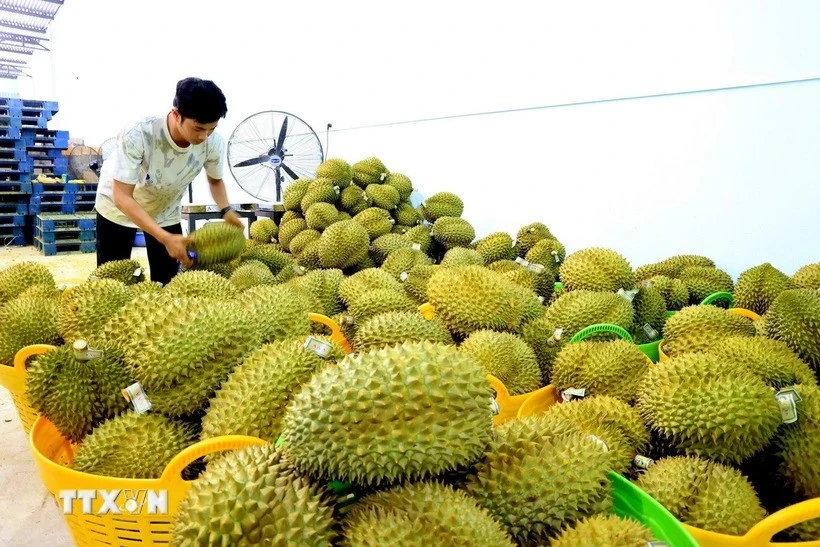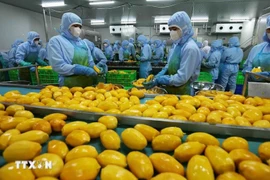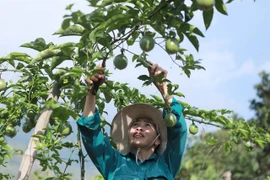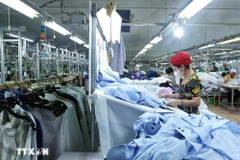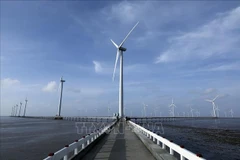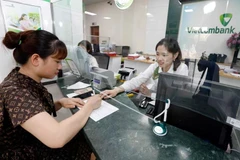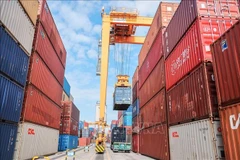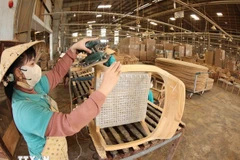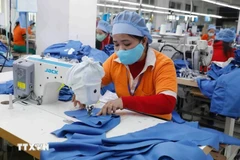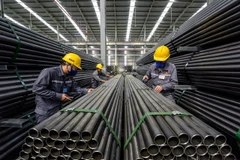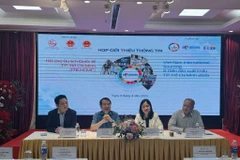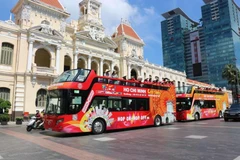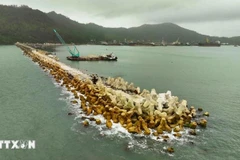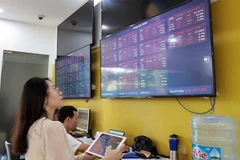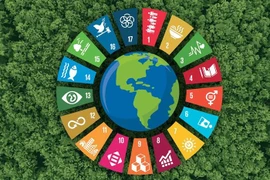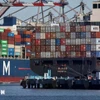Hanoi (VNA) – A robust, accountable value chain with strict quality control and oversight is emerging as the cornerstone for Vietnamese fruits and vegetables to conquer global markets with confidence.
Vietnamese fruits and vegetables are now present in more than 80 countries and territories, with key markets including China, the US, the Republic Korea, Japan, and Australia. Free trade agreements (FTAs) such as CPTPP, RCEP, EVFTA, UKVFTA, and ACFTA have opened up significant export opportunities for Vietnamese agriculture, especially vital as global markets face mounting volatility and major economies like the US adjust tax policies.
To ensure product quality from the ground up, the Ministry of Agriculture and Environment has launched residue monitoring programmes at key growing areas and packing facilities. Provinces like Tien Giang and Long An have implemented strict pesticide residue control systems, ensuring compliance with maximum residue limits (MRLs) in critical import markets, including China.
Despite marked improvements in yield and product quality, Vietnam’s fruit sector still lags behind regional and global averages, said Nguyen Thanh Binh, Chairman of the Vietnam Fruit and Vegetable Association. Fragmented and small-scale production models hinder the development of complete supply chains. High post-harvest losses and slow adoption of preservation technologies remain pressing concerns.
Distribution and retail systems are also underdeveloped, and the lack of strong linkages between farmers, businesses, and consumers results in unstable product quality and inflated prices due to multiple intermediaries. Compliance with standards remains weak, and supply chain partnerships are fragile and easily disrupted, Binh added.
He also pointed to gaps in quality standards for high-value fruits like durian, dragon fruit, and bananas. Improving product safety and enhancing adherence to international standards are crucial, along with fostering long-term cooperation among stakeholders.
Experts agree that boosting exports requires professionalizing every stage of the production and export chain, with farmers and enterprises working together in tandem.
Vina T&T Group, one of Vietnam’s leading fruit exporters, has established standardised growing zones across provinces like Long An, Binh Thuan, Tien Giang, Vinh Long, and Can Tho. According to Nguyen Phong Phu, the group’s Technical Director, strict compliance with pesticide regulations is critical for gaining access to demanding markets.
The company has deployed a team of specialists to train farmers in proper pesticide use, ensuring produce meets international safety standards. Having certified packing codes is also a decisive factor in smooth export procedures, he added.
Binh urged the Ministry of Agriculture and Environment and local authorities to strengthen inspections and crack down on violations to protect reputable producers. He also called for faster issuance of planting area and packing codes, along with clear quality standards to guide consistent production, harvesting, and processing, laying the groundwork for more confident international market negotiations.
Ngo Xuan Nam, Deputy Director of Sanitary and Phytosanitary Notification Authority and Enquiry Point, emphasised that businesses must proactively establish certified growing zones. A co-managed approach involving farmers, exporters, packing facilities, industry associations, regulators, and local authorities is essential for ensuring food safety and input quality from the outset.
Farmers must strictly follow pesticide use regulations and stay up to date with import market requirements. Transitioning to organic practices and using biological agents can better meet international expectations, he added. Businesses, in turn, should walk alongside farmers to jointly manage product quality.
Deputy Minister of Agriculture and Environment Hoang Trung reaffirmed that under no circumstances should banned chemicals be used or residue limits exceeded. Comprehensive food safety control systems must be in place at every stage, from farms and growing areas to packing, processing, and storage, to ensure seamless export operations, he said.
The ministry is currently directing the Plant Protection Department to implement expanded chemical residue monitoring programmes across growing areas and packing facilities, ensuring quality control from the source, Trung noted./.
